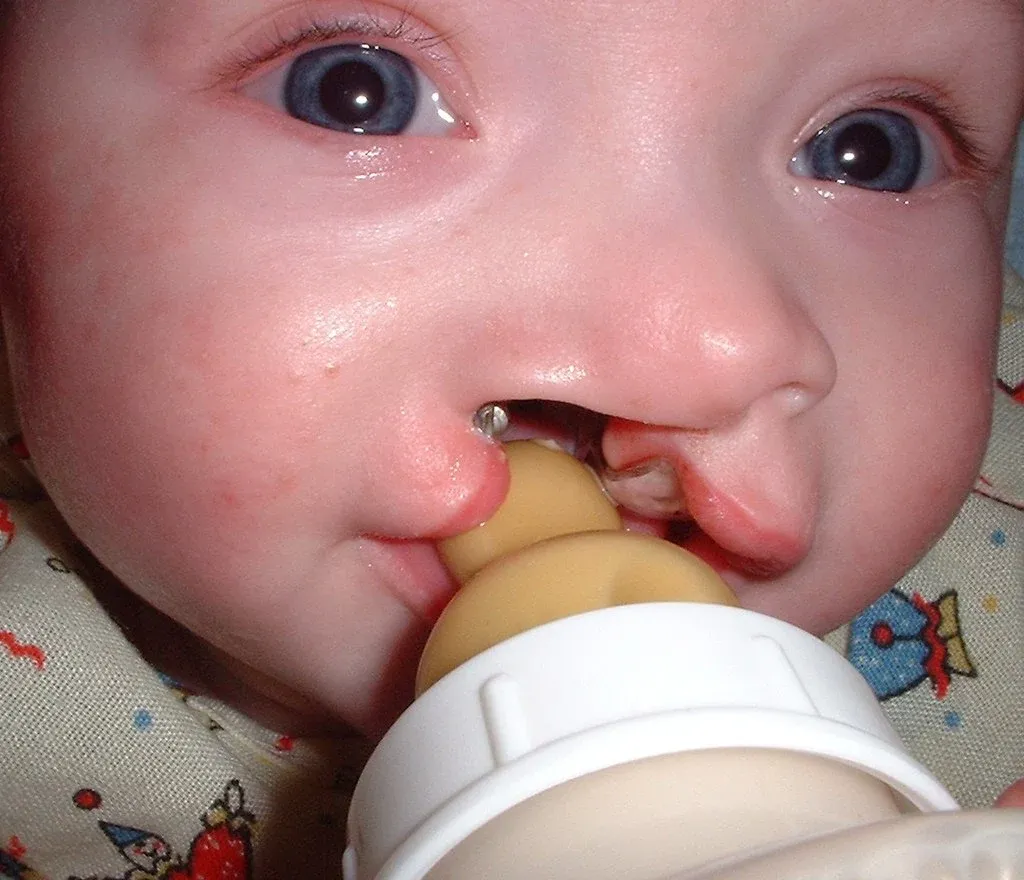-

·
Why Obesity Can Affect Breastfeeding and What You Can Do About It
Women dealing with excess weight were found to regularly have more difficulties with breastfeeding. Breastfeeding provides unmatched health benefits for babies and mothers. According to the World Health Organization (WHO), breastfeeding is one of the most effective ways to ensure child health and survival. This is primarily because breast milk contains antibodies that help protect…
-

·
Mastitis 101 – Natural Tips to Heal Quickly and Prevent it
Struggling with painful, swollen breasts while nursing? This guide offers natural, fast-acting solutions to relieve discomfort, support healing, and prevent flare-ups. From gentle remedies to real mom tips and expert-backed advice, you’ll learn how to care for your body and continue breastfeeding with confidence.
-

·
Cleft Lip and Palate
The Obturator can help the baby suck stronger and provides firm pressure on the breast. The mother should request that the Obturator be made of a smooth surface, as not to hurt her while breastfeeding Cleft lip and Cleft palates are among the most common birth defects. While the fetus is developing in the mother’s…
-

·
Breastfeeding and Diabetes – Can You Still Breastfeed?
Yes, a diabetic mother can continue to breastfeed her baby. Whether you have type 1, 2 or gestational diabetes, you can and should continue to breastfeed. Diabetic mothers are advised to breastfeed their babies exclusively for 6 months or longer Breastfeeding and Diabetes The Advantages of Continued Nursing Should you be breastfeeding while diabetic? What…
-

·
Metformin and Breastfeeding
Metformin and Other AntidiabeticMedicines: Are They Safe to Use WhenBreastfeeding? Approximately 15 million women, or one in every nine women, in the United States have diabetes – and health outcomes for female sufferers tend to be worse than they are for men. For instance, women have a four times higher risk of developing heart disease…
-

·
Where to Turn to for Help With Breastfeeding
Breastfeeding Help and Support Being a new parent can sometimes be an isolating experience when you’re at home with a new baby. If you’re experiencing breastfeeding problems, you might feel like there’s no one you can turn to for help. You might even believe that people will judge you for not adapting to breastfeeding naturally. …
-

·
Postpartum Depression & Breastfeeding – What You Need to Know
Up to 80% of new moms experience anxiety or depression after birth, often without realizing it. This guide explores the connection between postpartum depression and breastfeeding, offers practical support strategies, and explains treatment options—helping mothers prioritize both mental health and nurturing their baby with confidence.
-

·
Self-Care Tips for Postpartum Wellness
During the postpartum period, we need to learn how to balance our newborn’s needs with our own The first twelve weeks after your baby’s arrival are incredibly transformative. It’s a time of discovery, filled with learning about your new role as a parent and understanding your baby’s needs. This period also allows you to focus…
-

·
Postpartum Recovery While Breastfeeding
You’re nurturing a new life, but it’s equally vital to nurture yourself. This guide offers practical tips to support your healing, make your breastfeeding experience more comfortable, and ensure you can fully embrace this precious, fleeting time with your little one. Welcome to the incredible journey of motherhood! While the immense joy of holding your…
-

·
Feminine Health After Birth – Best Stategies for Healing
Feminine health after birth is about more than healing—it’s about understanding what your body’s been through and how to support it moving forward. From pelvic floor recovery to hormonal shifts and intimacy challenges, this guide offers honest, practical steps to help you feel stronger, more informed, and more at ease postpartum.
Tag: Medical Issues
 This tag “medical issues while breastfeeding” is for categorizing discussions and resources related to health conditions in either the nursing parent or the infant that can impact the breastfeeding journey. It serves as a central hub for information and peer support when medical complexities arise, from common infections to chronic illnesses.
This tag “medical issues while breastfeeding” is for categorizing discussions and resources related to health conditions in either the nursing parent or the infant that can impact the breastfeeding journey. It serves as a central hub for information and peer support when medical complexities arise, from common infections to chronic illnesses.
Medical issues while breastfeeding disclaimer:
Content under this tag is for informational and support purposes only. It is not a substitute for professional medical advice. Always consult with a qualified healthcare provider (such as your doctor, a paediatrician, or an International Board Certified Lactation Consultant – IBCLC) for diagnosis and treatment.
We cover a broad range of topics where health and breastfeeding intersect.
For the Breastfeeding Parent:
Breast and Nipple Conditions: Information and support for managing painful issues like:
- Mastitis: Inflammation or infection of the breast tissue.
- Thrush (Candidiasis): A fungal infection affecting the nipples and/or the baby’s mouth.
- Plugged Ducts & Milk Blebs: Blockages in the milk ducts.
- Nipple Vasospasm (Raynaud’s Phenomenon): Blanching and pain in the nipple due to restricted blood flow.
- Abscesses: A collection of pus that can form as a complication of mastitis.
- Hormonal and Systemic Conditions: Discussions on how conditions like Polycystic Ovary Syndrome (PCOS), thyroid disorders, and Insufficient Glandular Tissue (IGT) can affect milk supply.
- Medications & Treatments: Questions and shared experiences about the safety and effects of taking medications (e.g., antidepressants, antibiotics, pain relievers) while nursing.
- Mental Health: Support for navigating challenges like Postpartum Depression (PPD), anxiety, and Dysphoric Milk Ejection Reflex (D-MER).
- Chronic Illness: Managing pre-existing conditions such as diabetes, hypertension, or autoimmune disorders during lactation.
For the Breastfed Infant:
- Anatomical Issues: Challenges related to the baby’s physical ability to breastfeed effectively, including tongue-tie, lip-tie, and high palate.
- Allergies and Intolerances: Identifying and managing symptoms of conditions like Cow’s Milk Protein Allergy (CMPA) and other food sensitivities transmitted through breast milk.
- Common Infant Conditions: Navigating breastfeeding with a baby experiencing jaundice, reflux (GERD), or slow weight gain.
- Illness: Advice and support for nursing a baby who is sick with a cold, fever, or other infections.
This tag helps individuals connect with others who have faced similar medical challenges, share practical solutions, and find resources to continue their breastfeeding journey safely and confidently.